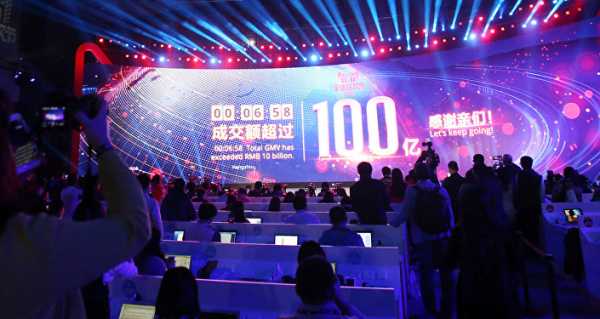
The fintech company and affiliate of the Alibaba Group plans to shore up billions in stocks in a bid to boost the Hong Kong stock exchange amid political turmoil on the finance hub’s national security law.
The Ant Group is set to launch a massive dual-listing on the Shanghai Science and Technology Innovation (STAR) Board and Hong Kong Exchanges and Clearing Ltd (HKEX) indexes, potentially becoming the world’s largest initial public offering (IPO).
The Hangzhou-based fintech firm was launched by Alibaba and company founder Jack Ma in 2004, becoming China’s main mobile payment service.
According to reports, over 700m people and 80m firms a month use the fintech giant for financial transactions, including paying for utilities and investments. Alibaba also owns 33 percent of shares in Ant and includes its services in the Alipay app.
The firm is worth up to $300bn, beating some US banks such as Citigroup at $100bn in market capitalisation, analysts have said.
“The world’s largest financial Institutions are now in China,” Shaun Rein of China Market Research Group told the BBC, adding that the IPO could raise around $30bn, topping Saudi Aramco’s listing of $29bn.
The news comes amid a surge in foreign and domestic capital investment on the STAR market, namely in the mainland’s semiconductor industry. Shanghai-based Semiconductor Manufacturing International Company (SMIC) listed its IPO on the STAR board in July, tripling shares for the chipmaker from 27.46 yuan to 95 yuan, reports showed.
Growth in the Chinese market has seen 133 Chinese firms, including businesses in Hong Kong, Taiwan and mainland China, make the Forbes 500 list of top firms in the world, compared with 121 US companies.
The listing comes amid major diplomatic rows with the United States and United Kingdom over Hong Kong’s national security law, which aims to crack down on pro-secessionist groups operating in the region, spiking tensions between the economic competitors amid the ongoing US trade war with China.
The political tensions have raised concerns about the special administrative region’s future as a finance hub, namely over its ‘one country, two systems’ agreement after being handed to Beijing in 1997.
Sourse: sputniknews.com






